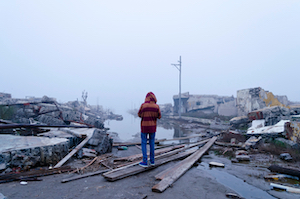
 The American Retirement Association has endorsed new bipartisan legislation that would make permanent retirement plan tax relief measures that automatically kick in following a presidentially declared disaster.
The American Retirement Association has endorsed new bipartisan legislation that would make permanent retirement plan tax relief measures that automatically kick in following a presidentially declared disaster.
Introduced by Sens. Bill Cassidy (R-LA) and Bob Menendez (D-NJ), both of whom sit on the Senate Finance Committee, the bill would allow individuals affected by hurricanes, floods, wildfires and other natural disasters to access their retirement benefits without being forced to pay early withdrawal penalties or having to wait for Congress to take action.
“Every year tens of thousands of Americans are victims of disasters from floods, tornadoes, hurricanes, forest fires, or more recently a global health pandemic. But because there are not permanent rules on the use of retirement funds by individuals impacted by these situations, victims are dependent upon Congressional action after the occurrence of each disaster,” the ARA said in a statement.
“The ARA strongly supports permanent retirement plan tax relief measures that would automatically apply once a Presidential disaster declaration is issued. ARA applauds and supports Senators Cassidy and Menendez’s legislation that would make eligibility for these distributions in these circumstances permanent,” the organization noted.
While the president can issue a disaster declaration and trigger FEMA’s authorization to act immediately, Congress might take weeks to provide assistance, such as waiving the early-withdrawal penalty for those affected by the disaster, Sens. Cassidy and Menendez explain in their joint statement. They further emphasize, for example, that those who have lost homes need financial relief immediately.
General Provisions
The underlying tax-relief provisions appear to track very closely with retirement plan disaster-relief provided in earlier years in earlier legislation. In general, the bill includes relief from the 10% early withdrawal penalty for qualified disaster relief distributions up to $100,000 from a qualified retirement plan, 403(b) plan, 457(b) plan or an IRA.
In addition, income attributable to a qualified disaster distribution may be included in income ratably over three years, and the amount of a qualified disaster distribution may be recontributed to an eligible retirement plan within three years.
A “qualified disaster distribution” is defined as any distribution from a qualified retirement plan, 403(b) or 457(b) plan made on or after the first day of the incident period of a qualified disaster and before 180 days after the date of enactment, to an individual whose principal place of residence during the incident period is located in the disaster area and who has sustained an economic loss by reason of such disaster.
Additionally, a plan would not be treated as violating any Code requirement merely because it treats a distribution as a qualified disaster distribution, provided that the aggregate amount of such distributions from plans maintained by the employer and members of the employer’s controlled group or affiliated service group does not exceed $100,000 for each qualified disaster.
The legislation also allows for the recontribution of retirement plan withdrawals for home purchases cancelled due to eligible disasters. Additionally, it allows an increase in the limit on loans from $50,000 to $100,000 that would not be treated as distributions. And individuals with outstanding loans who reside in a disaster area would be eligible to delay repayment of their loans for up to one year.
The bill was referred to the Senate Finance Committee, which is planning to act later this year on broader retirement security legislation, similar to the House Ways and Means Committee’s SECURE Act 2.0 legislation.
- Log in to post comments
